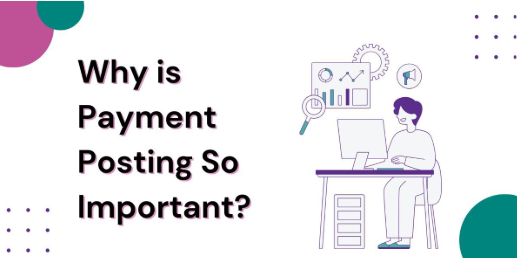Key CPT Code Changes: Behavioral health CPT codes have been refined for 2025. Documentation of session times is more granular – e.g., 90837 (53+ min psychotherapy) now has clearer criteria for when to use add-on codes for extra time, and providers are urged to note exact start/end times to capture higher-level codes. The psychotherapy codes 90834 (38–52 min) and 90832 (16–37 min) likewise have updated examples and documentation tips. Collaborative Care Management codes also shifted: 99484 (care management for behavioral conditions) gets a ~12% rate increase, and the psychiatric collaborative care codes 99492–99494 now allow additional provider types (e.g. licensed counselors and family therapists) to bill as care team members. New assessment codes were clarified – for example, 96146 (automated neuropsych tests) now explicitly covers digital therapeutic assessments, and 96121 (neurobehavioral status exam) has updated documentation guidelines. (As always, verify each code’s descriptor for specific 2025 rules.)
Medicare and Payer Policy Updates: The 2025 Medicare Physician Fee Schedule introduced several new codes and policies to improve access to behavioral health. Most notably, CMS finalized new HCPCS G-codes for mental health: G0560 pays for 20‑minute safety‐planning sessions (e.g. for suicide risk), G0554 covers a bundled series of post‑discharge follow‑up calls, and G0552–G0554 cover FDA-approved digital mental health devices (incident to services under a behavioral health plan)cms.govcms.gov. CMS also added G0546–G0551 so psychologists, clinical social workers, MFTs, and counselors can bill interprofessional consultation codes (mirroring existing CPT consult codes)cms.govcms.gov. Telehealth remains broadly covered: Medicare has permanently extended audio-only and home telehealth for behavioral services, and MFTs and counselors can bill as distant-site providers via telehealthtelehealth.hhs.gov. Meanwhile, Medicaid programs are generally following these trends (many states likewise allow BH telehealth and new services, though specifics vary by state). Major insurers are also adapting: for example, Medicare Advantage plans are now required to maintain adequate behavioral health networksmossadams.com (improving access and reducing out-of-network costs), and carriers have been expanding telebehavioral coverage. A federal parity update – the September 2024 rule strengthening MHPAEA enforcement – had aimed to force insurers to analyze outcome data for true paritycommonwealthfund.org, but its enforcement was paused in May 2025 amid legal challengesupdates.apaservices.org. In practice, providers should stay alert to each payer’s detailed rules (authorization, coding, place-of-service, etc.) since policies can differ.
Compliance and Regulatory Changes: Several regulatory shifts affect behavioral health billing. The Department of Health and Human Services rolled out new safety‑planning and digital-treatment rules (as above) to support crisis and innovative carecms.govmossadams.com. Pandemic-era waivers largely remain in effect for 2025: Medicare will continue to reimburse mental health telehealth (including audio-only) without geographic limitstelehealth.hhs.gov, and required in-person visits before/after telehealth are delayed through late 2025telehealth.hhs.gov. At the federal level, funding and parity remain under debate: proposals in 2025 called for significant Medicaid cuts (which could threaten BH coverage) and even for restructuring SAMHSA/HRSAupdates.apaservices.org. Behavioral health providers should continue meticulous compliance with all HIPAA and MHPAEA rules (even if new parity regs were delayed) and document medical necessity and care coordination carefully. (For example, if a claim is for an integrated care service or uses a new code like G0560, ensure all required documentation and problem lists are in place.)
Common Denial Trends & Avoidance: Behavioral health claims often get denied for predictable reasons. The most common drivers are incomplete documentation (missing treatment notes, lack of medical necessity language) and coding errors (wrong codes or missing modifiers)apaana.comosplabs.com. Telehealth claims can fail if the wrong place-of-service or modifier is used, or if an insurer’s telehealth requirements aren’t metapaana.com. To reduce denials, practices should track denial trends and root causes using analytics and adjust processes accordinglyapaana.com. Key tactics include verifying insurance benefits and authorizations before services (to avoid rejections), documenting each session’s start/end times and all clinical details, and using the correct CPT/HCPCS codes and modifiers. For example, don’t default to 90834 if a session hits 53 minutes – document and bill 90837 insteadmedwave.io. Timely appeals and resubmissions are also critical: research suggests many denied claims are never appealedosplabs.com. In short, tight coding practices (including often-missed add-on codes like 90785 for interactive complexity) and proactive denial management are key to cleaner claims.
AI & RCM Automation Trends in Behavioral Health Billing
Automation and AI are rapidly transforming medical billing. Nearly half of U.S. hospitals now use AI in revenue-cycle operationsaha.org, and the trend extends to behavioral health billing. AI-driven tools can auto-assign CPT codes from clinical notes via natural language processing and scrub claims pre-submission to catch errorsaha.org. Machine-learning models can flag likely denials and their causes before claims go out, allowing staff to intervene (e.g. fix coding or obtain authorizations)aha.org. These technologies free up staff from repetitive tasks and reduce preventable rejections. In practice, firms like Malakos Healthcare Solutions are bringing these innovations to clinics: Malakos’s new platform (built with AdvancedMD) uses AI to automate claims scrubbing and denial management, giving “faster reimbursements, reduced claim denials, and streamlined revenue cycle operations”prlog.org. By adopting smart RCM platforms and partnering with specialized billing services, behavioral health practices can leverage AI and automation to cut paperwork, speed payment, and improve accuracyprlog.orgaha.org.
Summary: The 2025 landscape brings both new coding opportunities and tighter requirements. Providers should learn the updated CPT/HCPCS codes (e.g. safety-planning G-codes, digital treatment codes) and refine their billing workflows accordingly. Staying compliant (especially with telehealth, parity, and documentation rules) and proactive in denial management will be crucial. Leveraging RCM automation – from software features to outsourcing to experts like Malakos Healthcare Solutions – can help behavioral health clinics minimize errors and get paid faster in this evolving environmentprlog.orgaha.org.
Sources: Recent updates are drawn from official CMS rules and summaries cms.gov, industry analyses medwave.iomossadams.com, and health policy commentary, among others. These reputable sources detail the CPT changes, Medicare/Medicaid policies, denial patterns, and AI/automation trends cited above.









